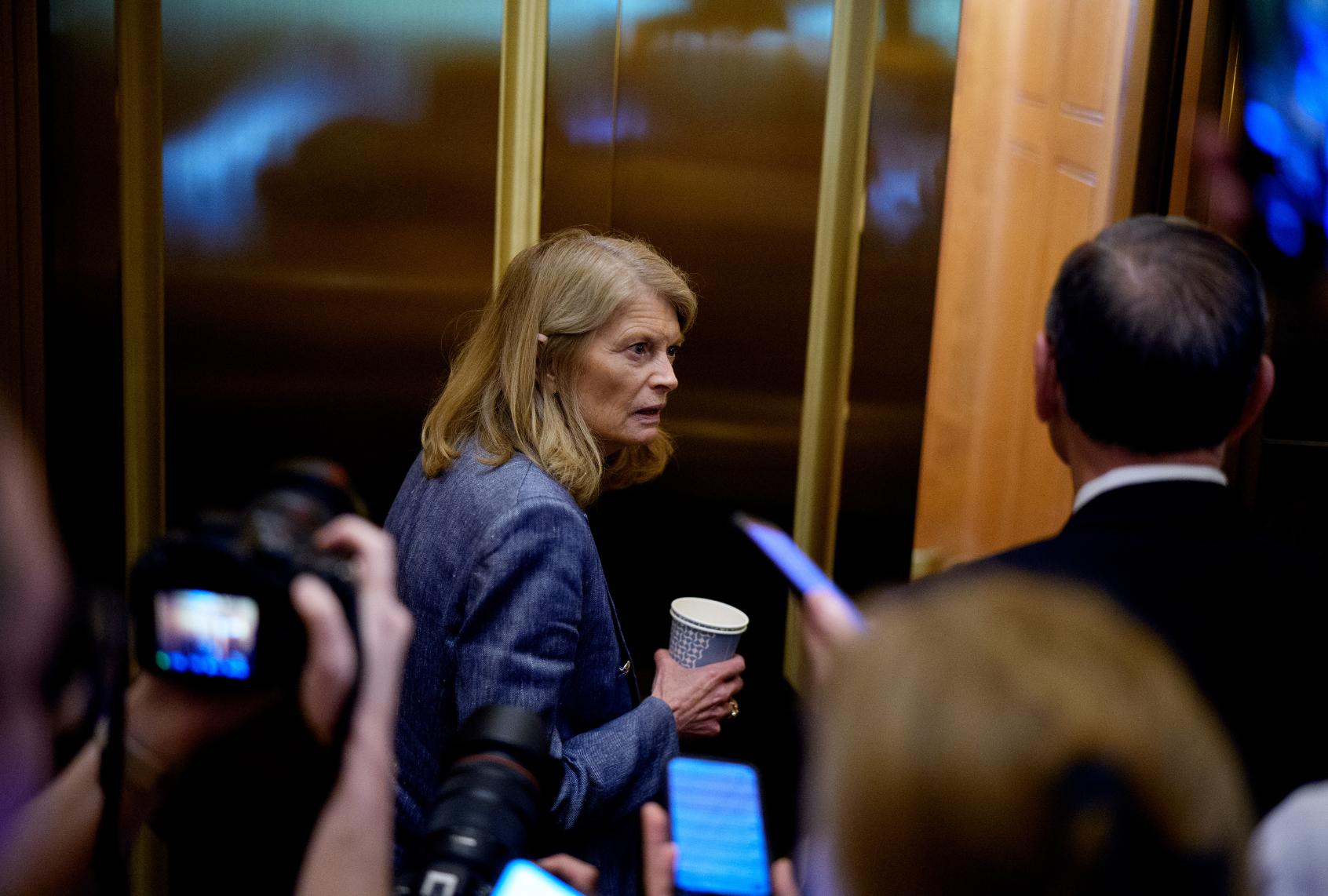Despite belllyaching from Sen. Lisa Murkowski, R-Alaska, over what she called an “agonizing” vote for President Donald Trump’s massive tax bill, the senator was able to secure an inordinate number of concessions from Republicans who were desperate for her vote. And, for her efforts, Alaskans are poised to be better protected from the effects of the Republican austerity budget than Americans in the lower 48.
“This was one of the hardest votes I have taken during my time in the Senate,” Murkowski wrote in a social media post on Tuesday, after voting for the bill. “My sincere hope is that this is not the final product. This bill needs more work across chambers and is not ready for the President’s desk. We need to work together to get this right.”
The big concession Murkowski won is a convoluted provision that rewards Alaska for having one of the highest payment error rates in the Supplemental Nutrition Assistance Program.
Currently, states and the federal government split the cost of administering SNAP, and the federal government covers the entire cost of SNAP benefits. Under the new Republican scheme, states will be expected to contribute up to 15% of the cost of benefits based on the state’s payment error rate in the program.
In the bill, Murkowski extracted a waiver that would, in effect, exempt Alaska from the new rule. Republicans accomplished this by delaying the new cost-sharing provision from going into effect for states where the “the payment error rate of a State multiplied by 1.5 is equal to or above 20 percent,” effectively rewarding states with the highest error rates.
Alaska’s payment error rate is the highest in the nation at 24.66%. However, other states with high payment error rates, like New York (14.09%), New Jersey (14.33%) and New Mexico (14.61%) also qualify for the exemption.
Murkowski also won a provision exempting Alaska from the new rules around work requirements for SNAP, with the bill exempting states that are “a noncontiguous State” and which have “an unemployment rate that is at or above 1.5 times the national unemployment rate.”
Under the bill’s definitions, there are only two non-contiguous states, Alaska and Hawaii, because Republicans explicitly excluded the territories of the U.S. Virgin Islands and Guam from the provision. As it stands, it doesn’t look like either state would qualify for the carve-out, because neither state has reached 1.5 times the national unemployment rate of 4.2%. However, Alaska, where the unemployment rate is 4.7%, is closer than Hawaii, where the unemployment rate is 2.8%.
We need your help to stay independent
On top of this, the bill also includes a provision for SNAP benefits to be adjusted to local costs for groceries in Alaska and Hawaii, even though it does not have similar provisions for other parts of the country where groceries are more expensive.
Sen. Amy Klobuchar attacked the provision on Monday, telling The Hill: “Two states — they threw in Hawaii — two states get this special treatment, and no one else, and so I just figure, if they get that treatment, maybe every other state should, you know? Maybe we should be doing that for Wisconsin.”
These major exemptions, which stand to dampen the effects of the GOP austerity measures for Alaskans, come in addition to numerous other provisions specifically targeted at Murkowski’s home state.
Start your day with essential news from Salon.
Sign up for our free morning newsletter, Crash Course.
For example, the bill includes special provisions for oil and gas leasing in Alaska, the National Petroleum Reserve in Alaska, tax breaks related to Native Alaskan subsistence Whaling,
While Murkowski ultimately did cast the crucial vote for the budget — one which allowed Vice President JD Vance to cast the tie-breaking vote in the Senate — there were other Senators, like Sen. Josh Hawley, R-Mo., who capitulated to the rest of the caucus without winning any special protections for their constituents.
“This has been an unhappy episode here in Congress, this effort to cut Medicaid. And I think, frankly, my party needs to do some soul-searching. If you want to be a working-class party, you’ve got to deliver for working-class people. You cannot take away health care from working people. And unless this is changed going forward, that is what will happen in coming years. So I’m going to do everything I can to stop that,” Hawley told NBC News shortly before voting for the bill.
Read more
about Trump 2.0


